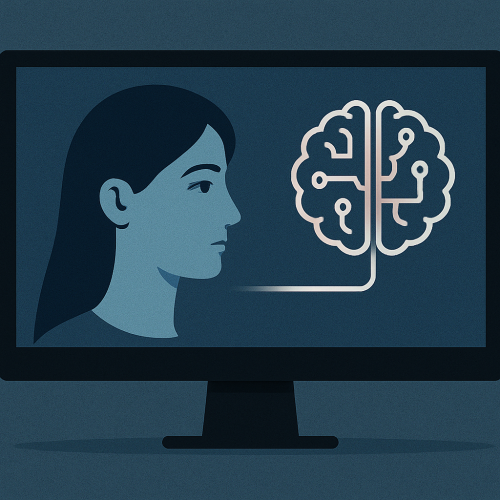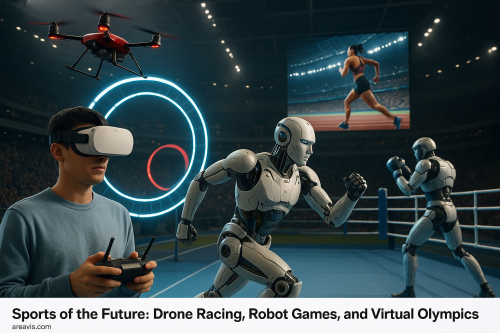Post to technology
A little over two decades ago, social media began as a simple tool to share our lives—photos of dinners, weekend trips, and family gatherings. Today, it has evolved into a vast digital organism, feeding on our emotions, decisions, and desires. The platforms that once promised connection have become living ecosystems where algorithms predict not only what we like—but who we might become.
In 2025, the line between the real and the virtual has all but vanished. Social networks are no longer driven solely by human creators. Artificial intelligence now designs content, manages engagement strategies, and even creates personalities that never existed. These are not mere bots or faceless chat accounts. They are AI avatars—digital beings with crafted backstories, evolving styles, and emotional intelligence that mirrors ours almost too perfectly.
Welcome to the era where your favorite influencer might not be human. And you might not care.
In the next few years, digital marketing will face its most profound identity crisis yet.
As artificial intelligence continues to revolutionize content creation, personalization, and advertising, it is also erasing the thin line that separates what is real from what is synthetic.
Hyper-realistic AI images, voice clones, and emotionally persuasive videos generated by neural networks are already infiltrating social media and ad campaigns. The result? A digital ecosystem where authenticity becomes a luxury — and trust, a fragile currency.
Welcome to the age of the digital mirage.
Once upon a time, conversation was the heartbeat of human connection. We talked to understand, to comfort, to argue, to laugh, and to fall in love. Today, silence often fills the spaces where words once flowed freely. A couple sits across from each other in a café, eyes locked—not with one another, but with their screens. Friends meet for dinner, yet their hands reach for notifications before their forks. Parents scroll through feeds while their children wait for eye contact that never comes.
The smartphone, a miraculous device that promised to bring the world closer, has instead built invisible walls between us. It has redefined attention, rewired our brains, and reshaped the emotional language of our time. What we have gained in instant access, we have lost in depth, presence, and authenticity.
According to a 2024 Pew Research Center study, over 82% of adults admit to checking their phones during conversations, and 47% say they feel ignored when someone they’re with does the same. In essence, we’ve learned to coexist in parallel monologues — scrolling, reacting, and “liking” rather than listening.
This article explores the slow death of real conversation — how technology has silenced our social instincts, why it matters psychologically, and how we can reclaim what was once so natural: the human voice.
The story of wireless communication is one of constant reinvention. Every decade or two, society witnesses a generational leap forward, with new standards transforming the way people connect, consume, and create. The first mobile calls of the 1980s, the texting revolution of the 1990s, the mobile internet boom of the 2000s, and the rise of 5G in the 2020s all marked milestones in the history of global connectivity. As the world stands at the midpoint of the 2020s, a new buzzword has captured the imagination of policymakers, researchers, and industry leaders alike: 6G.
But what exactly is 6G, and will it truly arrive by 2026, as some optimistic forecasts suggest? The question has sparked heated debate. On one hand, major players such as South Korea, China, and Finland have already launched pilot projects, spectrum trials, and large-scale research initiatives. On the other, international standardization bodies like 3GPP and ITU emphasize that official technical specifications for 6G are unlikely to be finalized before 2030.
This article dives deep into the world of 6G, exploring its technological foundations, promises, and challenges, while critically analyzing whether 2026 is a realistic target for its arrival or simply a stepping stone toward a longer journey.
Sports have always been a testbed for human limits—strength, endurance, strategy, grace. In the 2020s, a new axis of competition emerged: code. Sensors, machine learning, telepresence, and simulation are rapidly transforming what we train, how we compete, and even who (or what) qualifies as an athlete. Drone pilots now race craft that pull double-digit g-forces through neon-lit gates. Humanoid robots sprint, hurdle, and play 5-a-side football in repurposed Olympic venues. And millions already “compete” inside photoreal virtual stadiums, where physics engines and network latency matter as much as muscle.
This feature explores three converging frontiers:
Drone racing evolving from niche spectacle to mainstream circuit with real-world utility.
Humanoid Robot Games, inaugurated in Beijing in August 2025, which offered the clearest glimpse yet of mechatronic athletics—including who won and what it looked like.
The Virtual Olympics: a credible, near-term format where digital twins, haptic suits, and AI officiating create global competitions that are fair, accessible, and astonishingly immersive.
Together, they foreshadow a decade in which stadiums are half-lab, half-arena—and “personal best” is also a software build.
The year 2050 may sound far away, but in the grand sweep of human history, it is just around the corner. Within a single generation, the world will change more dramatically than it has in the last two centuries. Artificial intelligence, biotechnology, space exploration, and climate change are pushing humanity toward crossroads that feel like the opening chapters of a science-fiction novel.
But unlike the speculative worlds of Isaac Asimov or Philip K. Dick, these transformations are not confined to the page. They are being written in laboratories, on battlefields, in city halls, and inside the glowing servers of Silicon Valley. By 2050, some of these developments will seem as ordinary as smartphones or social media are today—once unimaginable, now indispensable.
In this article, we will explore 10 bold predictions for 2050 that blend cutting-edge science, political shifts, and human imagination. Each one sounds like sci-fi, but each one has roots in real trends already unfolding today.
The way humanity eats has always reflected the challenges and opportunities of its era. From the agricultural revolution to the rise of fast food, every century reshaped our diets. By 2050, with a projected global population of nearly 10 billion people, our food systems will face their biggest test yet. How will we feed everyone sustainably, nutritiously, and deliciously?
The future of food is not just about survival—it’s about innovation, culture, and the redefinition of what a “meal” really means. Let’s explore what our plates might look like in the mid-21st century.
In 2025, the phrase “Google Zero” has become one of the most unsettling terms in the digital publishing world. It refers to a future scenario in which Google’s AI-driven search engine provides answers directly on its results page—without the need for users to click through to external websites.
For years, website owners and publishers have relied on organic traffic from Google Search as the lifeblood of their businesses. But in this new ecosystem, searchers often never leave Google’s interface. Instead, they receive instant answers—summarized by AI, pulled from across the web, and neatly packaged into a single block at the top of the search page.
This is not a small adjustment in search behavior—it’s a seismic shift. And for publishers, bloggers, businesses, and even major news outlets, the stakes could not be higher. The internet was built on the principle of traffic flow: users search, click, visit, engage, and (hopefully) buy. But if “Google Zero” becomes the norm, this traffic stream risks drying up completely.
This article explores the rise of Google Zero, its impact on SEO and publishing, and most importantly—how to fight back. We’ll look at strategies to adapt, survive, and even thrive in the era of AI-dominated search.
On August 21, 2025, Elon Musk stirred the public with a provocative tweet: he suggested that AI could intentionally target the human limbic system—the emotional core of the brain—and potentially increase birth rates by shaping human instincts. While his speculations captivated social media, the real story lies in the broader, nuanced ways AI is beginning to intersect with emotional life and fertility—extending far beyond sensational claims.
The wait is nearly over. Google’s Pixel 10 series is shaping up to be one of the most anticipated smartphone launches of 2025. With new leaks pouring in about the Pixel 10, Pixel 10 Pro, and even a Pixel 10 Pro Fold, tech enthusiasts are buzzing about what could be the company’s most ambitious lineup yet. From the brand-new Tensor G5 chip to dramatic camera upgrades and AI-driven features, the Pixel 10 promises to push boundaries and challenge both Samsung and Apple at the top of the smartphone market.
In this deep-dive article, we’ll explore everything we know so far about the Pixel 10 series, including its design, specs, cameras, software, pricing, and release date. We’ll also compare it against its biggest rivals — the upcoming iPhone 16 and Samsung Galaxy S25 FE — to see if Google finally has what it takes to break through in the premium market.
The Dawn of Urban Air Mobility
For decades, flying cars have been a staple of science fiction, from The Jetsons to Blade Runner. They represented the ultimate symbol of technological progress — a future where roads are no longer congested, and city skylines are alive with vehicles zipping between skyscrapers. Now, in 2025, the dream is no longer just fantasy. Thanks to advancements in electric propulsion, autonomous navigation, and smart city infrastructure, flying cars — officially known as Urban Air Mobility (UAM) vehicles or eVTOLs — are moving from prototype to reality.
Over the next decade, the shift to aerial transportation will revolutionize how we live, work, and travel. By 2035, experts predict that flying cars will be a regular part of city life in select regions, reshaping everything from commute times to urban design.













